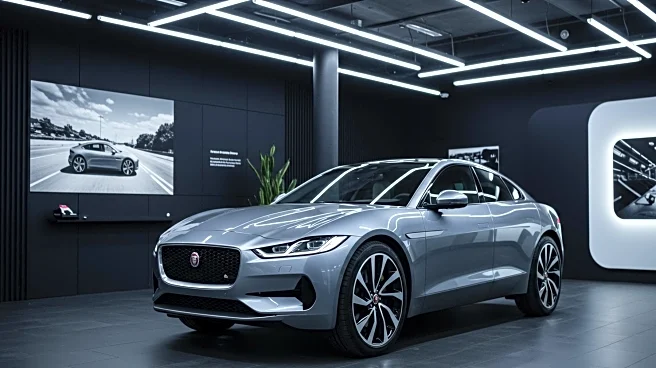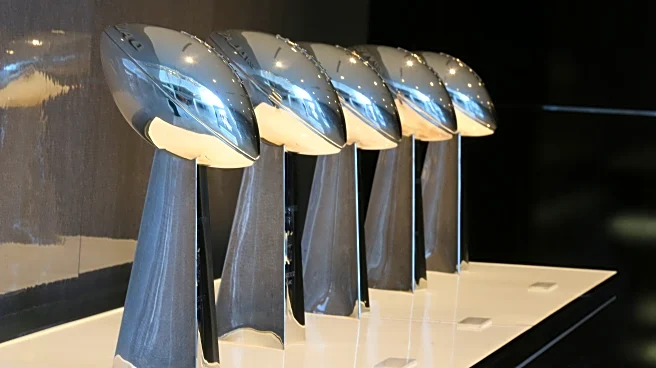What is the story about?
What's Happening?
Jaguar is undergoing a significant transformation, marking the most substantial change in its 90-year history. The British automaker plans to cease production of its current model lines and shift towards a more upscale market with the introduction of a new electric vehicle (EV) in 2026. This luxurious electric sedan, revealed as a concept in 2024 and known as the Type 00, will feature a hyper-monolithic design and is expected to be more expensive and capable than any previous Jaguar model. The production version will be a four-door sedan, maintaining much of the concept's design. Jaguar USA's head, Brandon Baldassari, emphasizes that the vehicle will be rare, making its sighting a special occasion. The company aims to focus on profit margins per vehicle rather than high sales volumes, aligning with its luxury brand identity.
Why It's Important?
Jaguar's strategic pivot to producing ultra-rare electric vehicles represents a significant shift in the luxury automotive market. By focusing on scarcity and high transaction prices, Jaguar aims to redefine its brand and compete in the competitive luxury EV space. This move could impact the broader automotive industry by setting a precedent for other luxury brands to prioritize exclusivity and high margins over mass production. Jaguar's decision to rely on its existing Jaguar-Land Rover dealership network, known for selling high-end Range Rovers, suggests confidence in its ability to attract affluent buyers. However, the success of this strategy will depend on the brand's ability to differentiate its EVs through design and technology, as electric powertrains become increasingly similar across brands.
What's Next?
Jaguar's transition to a luxury EV brand will involve significant changes in its retail strategy, with some dealerships opting to return their franchises due to market conditions or skepticism about the EV market. The company plans to double its average transaction price, which may lead to sticker shock for loyal customers. As Jaguar moves forward, it will need to navigate the challenges of the luxury EV market, which is highly competitive and reliant on design and interior technology. The success of Jaguar's new direction will depend on its ability to maintain exclusivity while appealing to a niche buyer base.
Beyond the Headlines
Jaguar's shift towards producing ultra-rare electric vehicles raises questions about the future of luxury automotive brands in the context of sustainability and environmental impact. As the industry moves towards electrification, luxury brands must balance exclusivity with the growing demand for eco-friendly vehicles. Jaguar's strategy may influence other luxury automakers to reconsider their production models and focus on high-margin, low-volume sales. Additionally, this shift could lead to changes in consumer perceptions of luxury, where rarity and design become more important than traditional performance metrics.

















